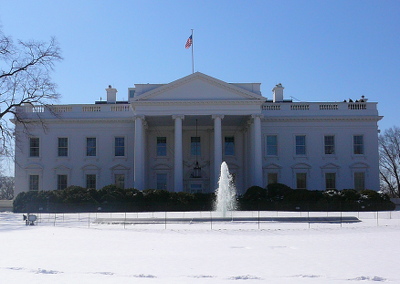FCC vs the Internet: Canada Saves the Day?
on
 OpenConcept’s sites have mostly been served from Canada. Like many others, we were concerned when the 2002 Homeland Security Act was put into place. Lots of organizations adopted our concern about what access the CIA, FBI, NSA would have on sites on American soil. This was an issue for us, but we certainly didn’t feel like these agencies would respect Canada’s border and indeed there might have additional restrictions within their territory.
OpenConcept’s sites have mostly been served from Canada. Like many others, we were concerned when the 2002 Homeland Security Act was put into place. Lots of organizations adopted our concern about what access the CIA, FBI, NSA would have on sites on American soil. This was an issue for us, but we certainly didn’t feel like these agencies would respect Canada’s border and indeed there might have additional restrictions within their territory.
Despite our concerns, we decided to move our infrastructure to the cloud and chose Amazon Web Services (AWS) as they were clearly the leader at the time. They have continued to innovate in the time that we have been a client, allowing us to more carefully manage the performance and cost of our sites. Unfortunately, until recently they didn’t have any servers in Canada.
To remain competitive and keep up with technology, we needed experience with a true cloud environment and all of that was happening in the USA.
Homeland Security+ and data sovereignty
With the election of Donald J. Trump and the increasing tensions in the USA, Canadians are becoming more aware of security and privacy concerns. The privacy concerns that many had about Homeland Security Act have been amplified by the constant barrage of news about the President. It is clear that Trump doesn’t seem to care about the bulk of his own citizens, and his America First rhetoric makes it clear his government’s stance on the rights and responsibilities of functioning in a global society.
The centralization of power isn’t a new problem. Since 2001 security agencies in most countries have been given greater powers, without a corresponding growth in oversight. This isn’t just a problem in the USA, but they do seem to have some of the most excessive examples in Western democracies.
Vice has a good article on the IXmaps project which is documenting NSA Listening Posts. There is evidence that the NSA has installed listening posts in some network hubs that listen in on packets which passes through them. IXmaps was developed with help from OpenMedia (which we sponsor), the Canadian Internet Registration Authority (we are members of CIRA and regularly attend their events), and Office of the Privacy Commissioner of Canada (the Government of Canada’s Privacy Watchdog).
The route that packets take between any two Canadian IPs can easily be routed through the USA. We don’t have full data sovereignty over the packets in transit between any two computers in Canada. There is a lower chance for packets from outside the USA to travel through one of these compromised data centres.
Net Neutrality
Recently FCC Chairman Ajit Pai enacted rulings specifically targeting Net Neutrality. I don’t know that anyone knows what implications there might be for people outside the USA, but the principle is pretty clear. If you want a fast, unthrottled connection, you’re going to need to pay some American company to prioritize your packets. Fortunately the Canadian Government is strengthening their support for Net Neutrality.
Now moving our servers to Canada won’t necessarily stop our clients from having to pay to get unthrottled service, but it will at least insure that they won’t have to pay if their visitors are browsing from outside the USA.
Lots of people are speculating on what the impact there will be when America’s biggest Internet Service Providers (ISPs) start adjust pricing and packet speed. Ultimately we won’t know the impact on consumer pricing, competition and innovation until we start seeing these oligarchies start adjusting access to the network.
What can we do about it?
Most people worried about the implications of the end of Net Neutrality have options. If the USA government is going to play cowboy with this global resource, there are ways to both lessen the impact of policy changes by USA ISPs and send a clear signal to the FCC.
Most individuals and organizations can make efforts to move their sites and servers to Canadian (or other non-USA) data centres. Most of the big platforms like Amazon, Microsoft and Google all have data centres around the globe and it is often possible to simply relocate your data to country which has a greater respect for privacy. You could even look for places where your hosting might be more environmentally friendly too!
Organizations can set policies about the location of their data centres and make it clear both by public statements and through clear procurement processes, that data for IT projects should be hosted outside of the USA.
OpenConcept’s hosting is now located in Canada, and we are actively encouraging others to invest in moving their cloud infrastructure North.
Finally, if you an American, please tell your Congress person about this and if you want to voice your concerns, but are not an American, sign the petition!
Share this article
About The Author
Mike Gifford is the founder of OpenConcept Consulting Inc, which he started in 1999. Since then, he has been particularly active in developing and extending open source content management systems to allow people to get closer to their content. Before starting OpenConcept, Mike had worked for a number of national NGOs including Oxfam Canada and Friends of the Earth.




Add new comment